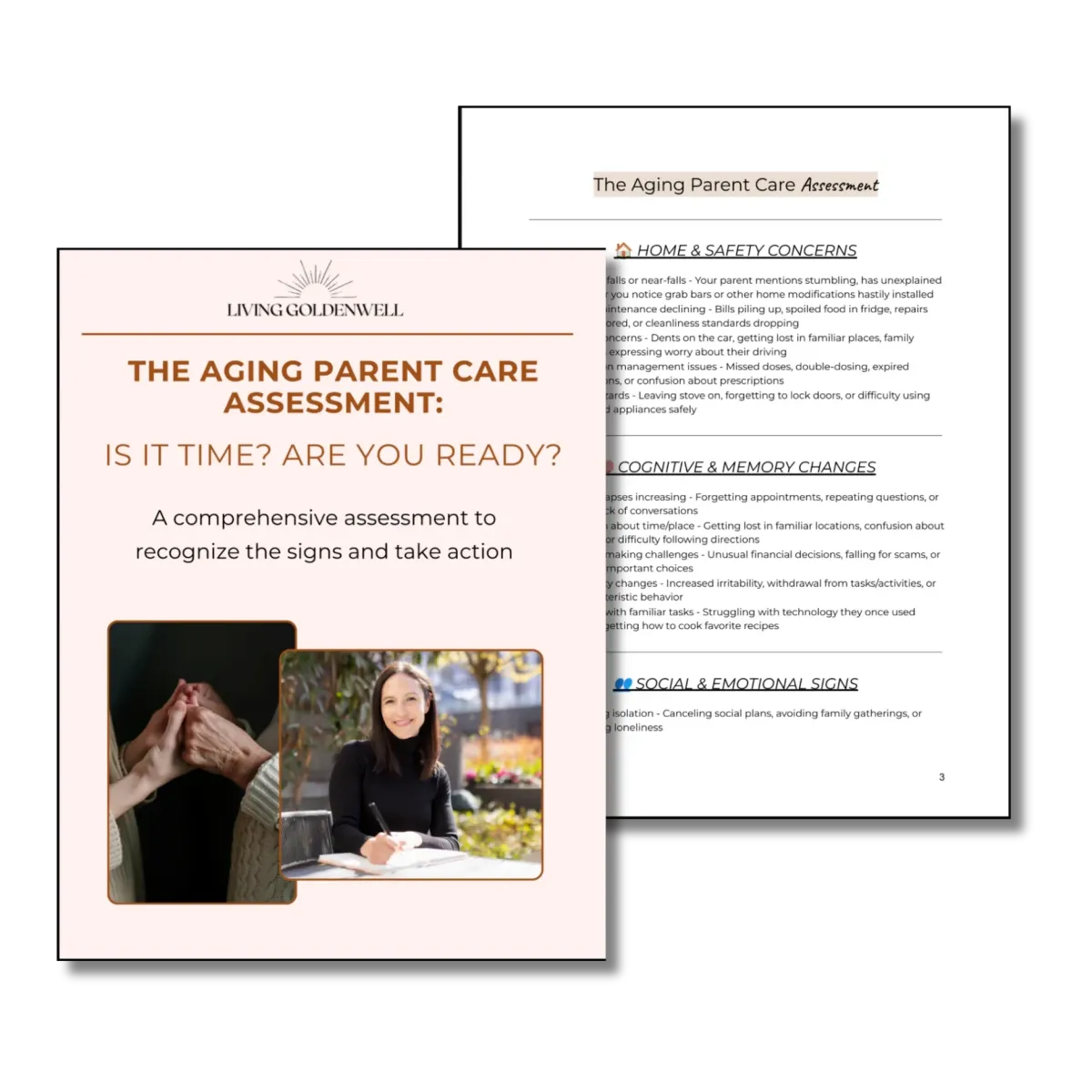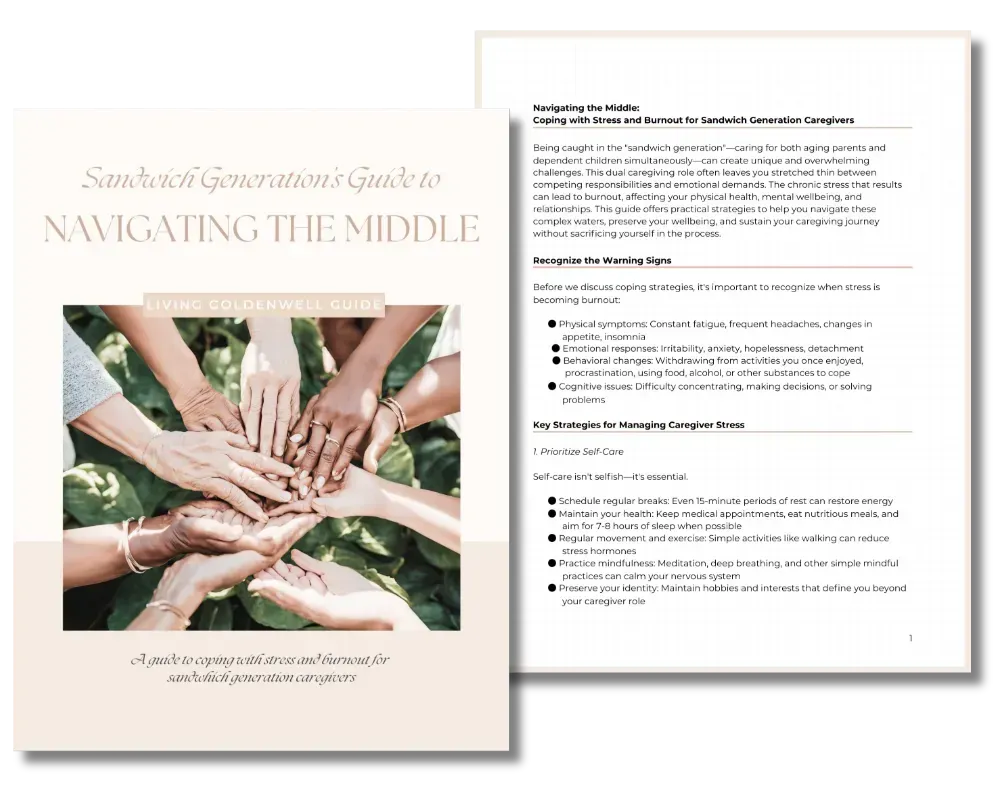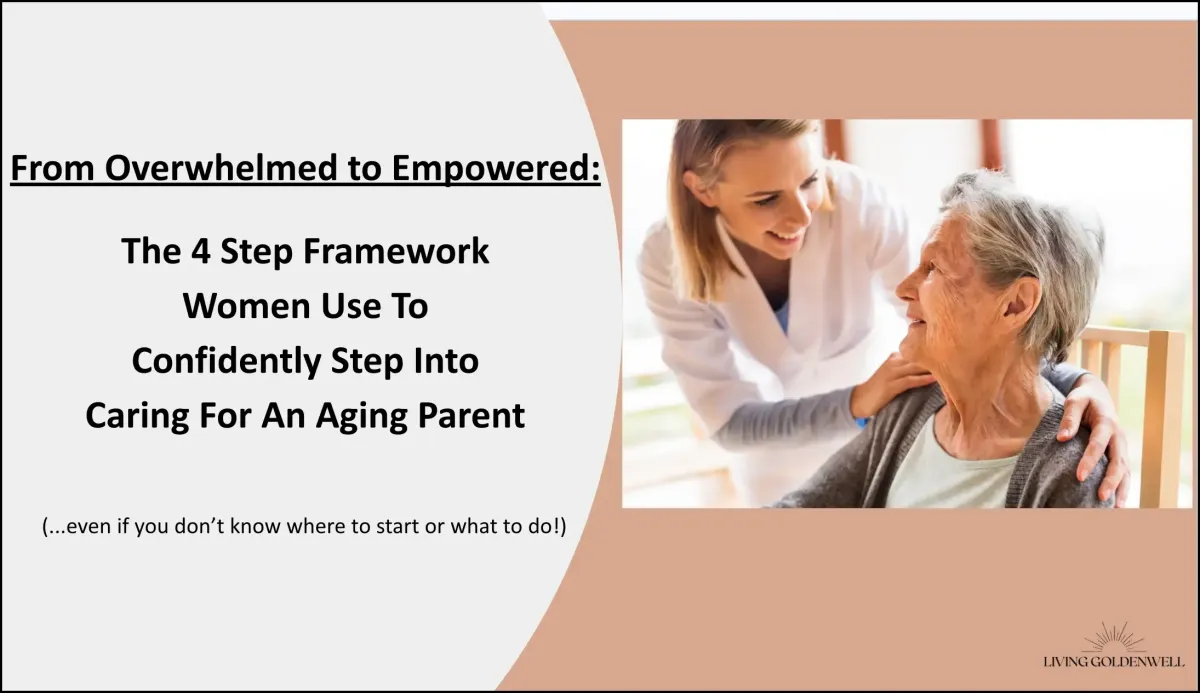
The Do’s and Don’ts of Taking Over Your Parent’s Finances
Stepping into your parent’s financial world can feel overwhelming. For many professional women, it’s one more role added to an already full plate of career demands, family responsibilities, and caregiving tasks. But when you become the “CFO” for your parent, clarity, compassion, and structure are your strongest tools.
This guide shares the top do’s and don’ts of navigating your parent’s finances—so you can protect their dignity, reduce family conflict, and avoid costly mistakes.

Do: Start the Conversation Early
The best time to talk about finances is before a crisis forces your hand. If your parent is cognitively healthy, begin gently opening the discussion now. Use natural conversation starters—like tax season, a news story, or even your own financial planning—to ask about their accounts, bills, and wishes.
Why this matters: When you wait until health declines, mental capacity becomes an issue, and you risk missing important details and losing the opportunity to honor your parent’s voice in the process.
Don’t: Wait for Them to Bring It Up
Most parents won’t ask for help—even when they need it. Some fear losing independence, while others may feel embarrassed about debt or limited savings. Don’t assume silence means security. Instead, approach with empathy and persistence.
Do: Get the Full Picture
Before making decisions, understand the entire financial landscape:
Income sources (Social Security, pensions, investments)
Assets and debts
Insurance policies
Daily expenses and recurring bills
Estate planning documents
Keep detailed notes, and whenever possible, share updates with siblings to prevent misunderstandings.
Don’t: Judge Their Past Decisions
You may discover surprises—credit card debt, unfinished mortgages, or fewer savings than expected. Resist criticism. Judgment erodes trust and makes your parent less likely to cooperate. Focus instead on solutions: “Here’s where we are. Here’s what we can do moving forward.”
Do: Involve Professionals
To the extent you’re able to, bring in trusted professionals—financial advisors, accountants, or elder law attorneys. A neutral third party can reduce family conflict, provide clarity, and explain complex options. Legal experts can also help you establish a power of attorney, health care proxy, or update estate documents—critical tools if mental capacity becomes an issue and your parent becomes unable to manage their affairs.
Don’t: Mix Finances
Keep your money and your parent’s money separate. Even if it feels easier to add your name to their account or pay their bills with your card, avoid co-mingling. Transparency matters—for you, your siblings, and for protecting your parent’s estate. Instead, create a dedicated system for their expenses so everything is traceable and clear.
Do: Lead with Empathy and Strategy
Approaching this role with empathy ensures your parent feels respected and supported, not managed. Pair that compassion with structure: checklists, shared documents, and clear agreements with siblings. With the right systems in place, you’ll reduce stress and preserve both your parent’s dignity and your own peace of mind.
Key Takeaways
Taking over a parent’s finances can feel like an obligatory duty, but it’s also a strategic leadership role. By starting early, mapping the full financial picture, and leading with empathy, you can safeguard your parent’s wellbeing and your family’s relationships.
The Do’s: Start early, document everything, involve professionals, and keep money separate.
The Don’ts: Don’t wait for a crisis, don’t judge, and don’t mix finances.
Next Steps
You don’t have to figure this out alone. At Living Goldenwell, we help professional women navigate eldercare with clarity and confidence.
Watch my free masterclass: Learn the 4 shifts thriving caregivers make to move from overwhelm to empowerment
Book a call with me: Create your personalized eldercare strategy
Enroll in the Program: Join Caregiving From The Middle for coaching, tools, and a supportive community
Taking over your parent’s finances doesn’t have to mean losing yourself. With the right guidance, you can care well, lead well, and live well.






